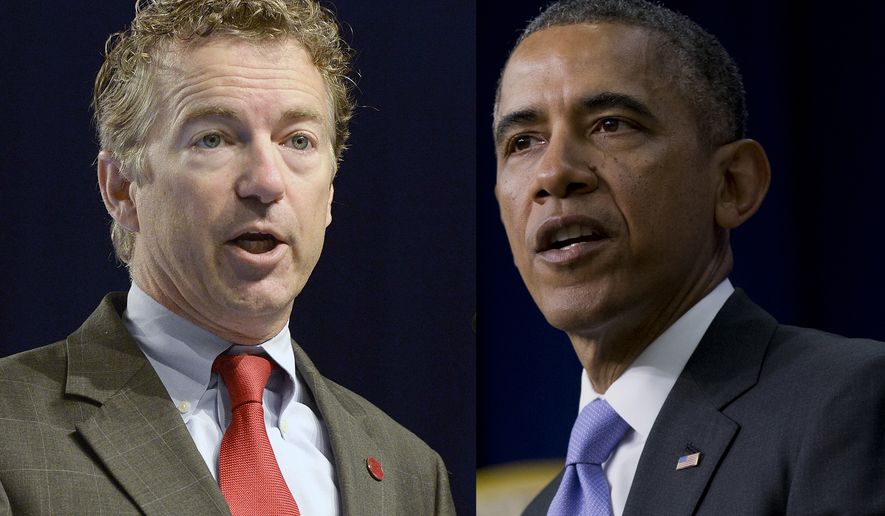President Obama on Friday cited Paul Revere as one of the earliest American intelligence-gatherers, riding through the streets to warn of impending British raids.
But Sen. Rand Paul disputed the president’s take on the iconic Revere and his overall understanding of the American Revolution.
“He mentioned Paul Revere, but Paul Revere was warning us of the British coming. He wasn’t warning us the Americans are coming,” Mr. Paul, Kentucky Republican, said on CNN just after the president concluded a speech in which he outlined changes to U.S. surveillance and data-collection efforts.
“The thing is, the lesson from the American Revolution that the president I think misunderstands is that we were upset about British soldiers writing their own general warrants — like national security letters — that allowed them to go into the colonials’ house and look at their papers. We didn’t like that so we wrote the Fourth Amendment to say the warrants have to be individualized … we didn’t want a dragnet.”
In a long-awaited speech, Mr. Obama on Friday announced several changes to how the federal government can access Americans’ phone records and other information, increasing the amount of judicial oversight.
He announced that national security letters — the documents referenced by Mr. Paul and used by the FBI and other government arms to request information related to national security matters and investigations — should “not remain secret indefinitely” and is asking the Justice Department to look into when and how they could be released publicly.
SEE ALSO: Obama calls for immediate checks, long-term changes to NSA snooping
He did not, however, call for judicial review of those letters, as Mr. Paul and others have called for.
• Ben Wolfgang can be reached at bwolfgang@washingtontimes.com.




Please read our comment policy before commenting.